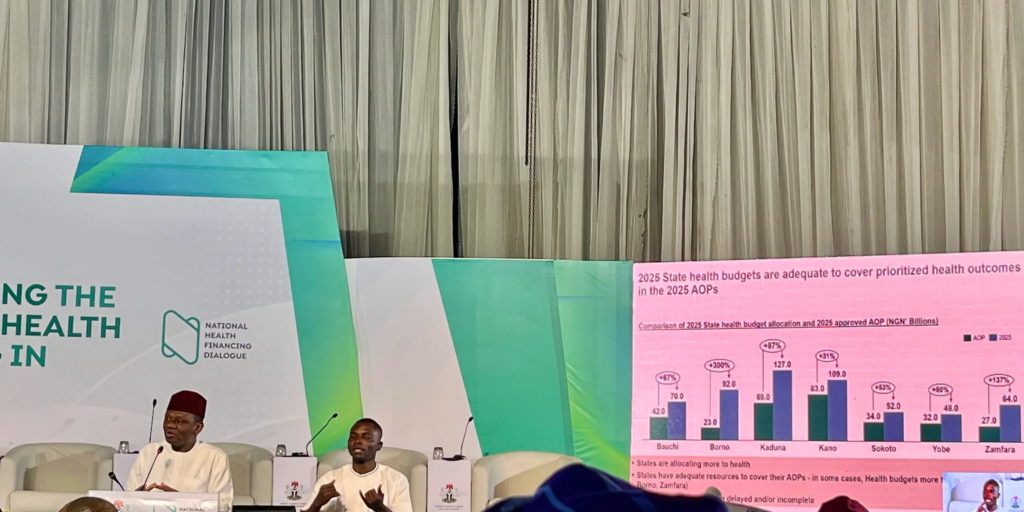
National Health Financing Policy Dialogue 2025
Finance and health experts have urged Nigerian leaders at all levels to ensure that the country’s growing fiscal revenues are matched with accountable and impactful health spending.
They warned that while reforms have boosted government revenues, weak planning and poor execution continue to limit health outcomes, leaving citizens without real improvements in access to care. The concerns were raised on Wednesday during the National Health Financing Policy Dialogue in Abuja.
Akin Oyebode, Commissioner for Finance, Ekiti State, said Nigeria’s reform agenda has boosted fiscal revenues, but warned that sudden increases in inflows could trigger inflationary pressures if not carefully managed.
“Higher inflows are welcome, but if they are not translated into executed expenditure, they are just numbers on paper,” he said.
Mr. Oyebode, who also chairs the Forum of Finance Commissioners of Nigeria, flagged weaknesses in current health programmes, particularly nutrition initiatives, which he described as fragmented and poorly coordinated.
He added that while social programmes such as school feeding were important, they must be scaled nationally to deliver real impact.
He also raised concerns over the growing challenge of health worker migration, driven by wide pay disparities across states. In some cases, he said, as many as 20 per cent of staff are leaving, undermining primary healthcare.
Muyi Aina, Executive Director of the National Primary Health Care Development Agency (NPHCDA), noted that Nigeria’s health costs are rising faster than budget revisions.
He cited vaccines as an example, stressing that year-on-year costs for childhood immunisation, TB medicines, and programme operations continue to escalate despite careful forecasts.
“With resources tied and costs rising, we must maximise the value of every naira spent. That means efficiency, transparency and accountability must go hand in hand with new money,” Mr. Aina said.
He proposed:
“Donors and partners can support, but Nigeria must first demonstrate its own commitment,” he added.
Earlier in the week, Iziaq Salako, Minister of State for Health and Social Welfare, said the federal government is considering legislation to double BHCPF funding from 1 to 2 per cent of consolidated revenue.
Mr. Salako added that the government has consistently funded the BHCPF and introduced emergency allocations to cushion the suspension of foreign aid.
The four-day dialogue (1–4 September), themed “Reimagining the Future of Health Financing in Nigeria,” brought together policymakers, civil society, private sector leaders, and development partners.
The event aimed to reduce out-of-pocket spending, improve accountability, and boost domestic investment in health.